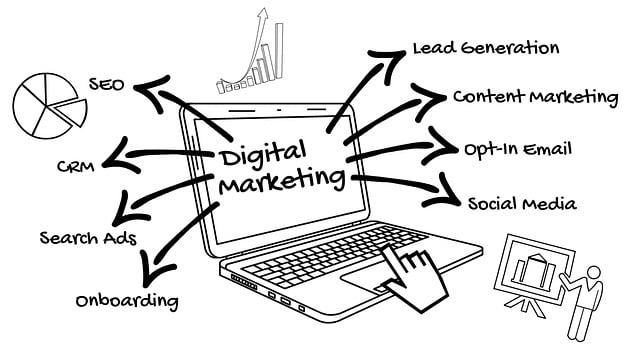AI image recognition is revolutionizing marketing by ensuring visual consistency across platforms, leveraging deep learning algorithms to interpret complex visuals. In e-commerce, it enhances customer trust and unified brand experience. This technology flags deviations from specifications, maintaining quality standards. Implementing personalized AI systems requires strategic objectives, data gathering, integration with existing infrastructure, and real-time personalization at scale. AI-driven marketing boosts engagement, satisfaction, loyalty, and conversion rates but faces challenges like privacy concerns, ethical development, and continuous investment in training, infrastructure, and talent.
“In today’s competitive market, personalized marketing is a game-changer. AI business personalized marketing systems are revolutionizing how brands engage customers, offering unparalleled visual consistency through AI image recognition. This article delves into the power of AI image recognition for creating cohesive, targeted campaigns. We provide a step-by-step guide on implementing personalized marketing systems and explore the benefits and challenges of this cutting-edge approach. Discover how AI is transforming marketing strategies and enhancing customer experiences.”
- Understanding AI Image Recognition for Visual Consistency in Marketing
- Implementing Personalized Marketing Systems with AI: A Step-by-Step Guide
- Benefits and Challenges of AI-Powered Personalized Marketing Solutions
Understanding AI Image Recognition for Visual Consistency in Marketing

AI image recognition is transforming marketing by enabling unparalleled visual consistency across all platforms. This technology goes beyond simple picture analysis; it leverages deep learning algorithms to understand and interpret complex visual data, such as objects, scenes, and emotions within images. By training on vast datasets, AI models can accurately identify and categorize products, ensuring that marketing materials consistently portray the correct image of a brand’s offerings.
For instance, in e-commerce, AI image recognition can ensure that product photos across various websites and advertising channels remain visually aligned with brand guidelines. This consistency builds trust with customers, as they receive a unified visual experience. Moreover, this technology aids in maintaining quality standards by automatically flagging images that deviate from set specifications, thereby enhancing overall marketing effectiveness.
Implementing Personalized Marketing Systems with AI: A Step-by-Step Guide

Implementing Personalized Marketing Systems with AI involves a strategic, step-by-step approach to harness the power of artificial intelligence for tailored customer experiences. Start by defining clear objectives and identifying key customer touchpoints where personalization can make the most impact. Next, gather and prepare high-quality data, ensuring it’s clean, organized, and relevant to your target audience.
Integrate AI image recognition technologies to analyze customer behavior and preferences visually. This enables consistent plating and presentation across various marketing channels, from emails to social media posts. Utilize machine learning algorithms to process this visual data, segmenting customers based on their aesthetic preferences and past interactions. Finally, build a robust platform that seamlessly integrates with your existing marketing infrastructure, allowing for real-time personalization at scale.
Benefits and Challenges of AI-Powered Personalized Marketing Solutions

AI-powered personalized marketing systems offer a myriad of benefits, revolutionizing how businesses interact with their customers. By leveraging advanced algorithms and AI image recognition for plating consistency, companies can deliver targeted content and products to individual consumers based on their unique preferences and behaviors. This level of personalization enhances customer satisfaction, fosters stronger brand loyalty, and drives higher conversion rates.
However, implementing AI-driven marketing solutions also presents challenges. Ensuring data privacy and security is paramount, as handling sensitive consumer information requires robust safeguards. Additionally, maintaining ethical standards in AI development and deployment is crucial to avoid biases and ensure fairness in algorithmic decision-making. Moreover, keeping pace with rapidly evolving AI technologies demands continuous investment in training, infrastructure, and talent to maximize the benefits and overcome potential pitfalls.
AI image recognition plays a pivotal role in achieving visual consistency across marketing platforms. By leveraging these advanced systems, businesses can create personalized experiences that resonate with individual customers. Implementing AI-driven personalized marketing involves strategic steps and careful consideration of benefits like improved engagement and efficiency, while also addressing challenges such as data privacy concerns. Embracing these solutions promises to revolutionize how brands connect with their audiences in today’s competitive landscape.
